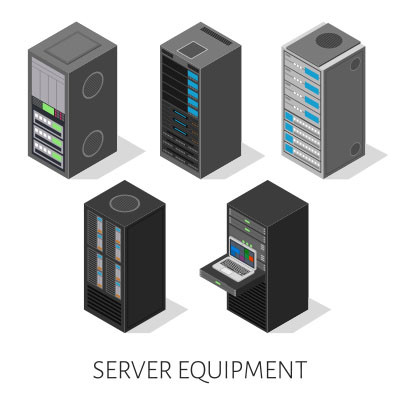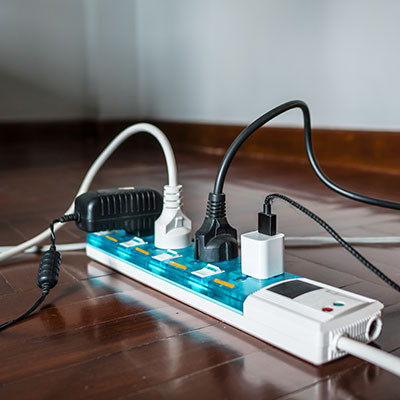It’s always good to know what kind of technological assets your business has at any given time, but some business owners don’t keep a detailed inventory. If you don’t know what you have, how will you know what you need? Let’s discuss some of the ways you can manage your IT inventory or make your current practices more effective.
Innovative Client Technologies Blog
When did you last turn your mobile device off and on again?
While any IT provider worth their salt would be the first to tell you that this is troubleshooting 101, another source also recommends a quick reboot every so often: the National Security Agency.
Let’s explore why the NSA shared this advice and what difference following it can make.
With mobile devices playing a crucial role in modern business it’s extremely important to have a clear plan for managing them. Unfortunately, this isn’t so cut and dry. Today, we’ll explore the differences between two of the most popular mobile management strategies: Bring Your Own Device (BYOD) and Corporate-Owned, Personally Enabled (COPE).
Your computer’s CPU is one of the most sensitive, advanced pieces of technology that you probably don’t think too much about. The CPU itself is just around 4-5 centimeters in length and width, and it handles all of the data processing in your computer. Every single thing you do on a computer gets calculated through the CPU. Most modern CPUs have billions of microscopic transistors in that tiny little space. These transistors are so small that you can fit hundreds of them on a single red blood cell, or thousands of them in the width of a human hair.
So it’s inevitable that something can go wrong. Many fairly modern computers are experiencing a bug right now that could potentially and permanently damage the CPU. There’s a patch to fix it, but if the damage is already done, the patch won’t repair it.
Servers contribute a significant effort toward your computing infrastructure, so it makes sense that you want devices that can fulfill your needs with performance, reliability, and security. To get the most out of your server units, we like to recommend you consider the following six tips when choosing new server hardware.
Self-service checkout registers are incredibly popular with Gen Z, and while there are differing opinions on them and their impact on the workforce, there’s no denying that they are here to stay. That said, there is much discussion on whether or not biometric payment processing would make for a more efficient method of checkout. Spoiler alert: it doesn’t, and it’s not welcome for either consumers or organizations.
The Right to Repair movement has evolved from a simple idea into a full-fledged campaign, with numerous states enacting measures to enhance the rights of consumers and businesses who use various technologies daily. Let's take a moment to assess the current status of this movement and explore what it means for businesses.
Digital storage is one part of computing that has seen astronomical growth over the past several decades, and with the solid state drive (SSD) more affordable than ever, you have to wonder how well your old hard disk drive (HDD) is holding up. Despite the cost difference between the two, the HDD is a viable option, albeit a mechanical one that is prone to breakdown over time.
Most computers you’ll find in the workplace are PCs that run Windows, but Apple is also a major player in the computing and technology landscape. Apple produces sleek and high-end hardware using efficient operating systems, but it’s not all sunshine and rainbows for Apple products and their users. In fact, at one time, they recommended the most absurd fix for one of their products: slamming it on the desk.
There’s nothing more intriguing than finding a random USB drive while cleaning up your office or while out and about. You might feel the urge to plug it in and discover its contents, but we are here to tell you that this is often a bad idea—particularly if the drive is unfamiliar to you. Unlike cloud storage, which is quite transparent, you don’t know what’s on a USB drive until you plug it in, and it’s often too late by the time this happens.
Building a company’s computing infrastructure is a costly and time-consuming process. Sure, you can purchase new servers; or workstations in bulk, but overall it takes some time to get everything set up and running just how you need it to. PC manufacturers are shipping fewer computers than ever before and that may have an impact on your business’ ability to get the technology it needs when it needs it. Let’s take a look.
We’ve all been in the position where we need to plug something in, but the outlet is completely full. Fortunately, there are devices that can help resolve this problem—but as is the case with most things, one option is notably better for business purposes. Let’s go over what makes a power strip different from a surge protector, and why the latter is a far better option for businesses.
Businesses these days rely on technology to keep themselves running, and without it, their ability to function can be compromised. Whether it’s a natural disaster or a cyberattack against your organization, you need to be prepared for catastrophic failure. What does this type of failure look like and how can you prepare for it?
Global supply chain shortages have been affecting businesses of all types for the better part of two years. For businesses that deal in computing, this problem has seen a jump in the price of some computer components, an inability to get some, and overall an interruption in their ability to supply the insatiable demand for technology. Today, we’d thought we’d take a look at some of the variables that have led us to the situation we now face.
In terms of the sheer amount of technology your company utilizes, we’re willing to bet that a sizable chunk of it is made up of hardware. This includes devices like your workstations, routers, switches, and servers. Most of us understand that this technology does not last forever, so you should not only expect your hardware to fail, but anticipate it. In other words, you need to be prepared.



















